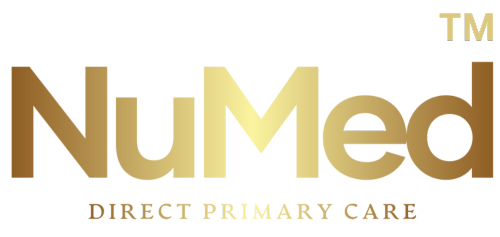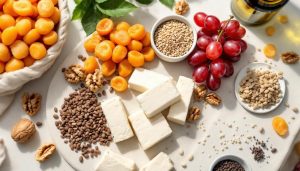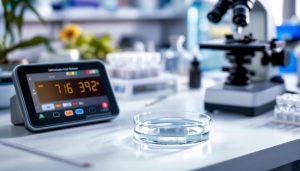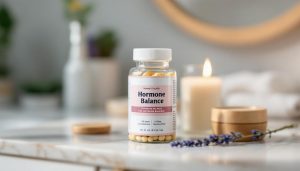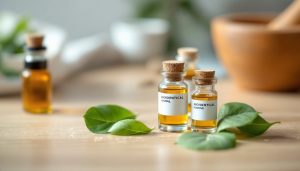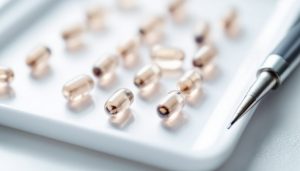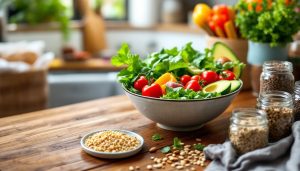At NuMed DPC, we understand the importance of a balanced diet for overall health.
Estrogen, a crucial hormone in both men and women, plays a significant role in various bodily functions.
In this blog post, we’ll explore high estrogen foods that can naturally support hormone balance and potentially improve your well-being.
What Is Estrogen and Why Does It Matter?
The Essential Role of Estrogen in Your Body
Estrogen, a group of hormones, plays a vital role in both men’s and women’s bodies. It influences bone density, heart health, and cognitive function. For women, estrogen regulates the menstrual cycle and supports pregnancy. In men, it supports bone health and sexual function.
A recent review has shown that both menopause hormone therapy (MHT) and exercise can improve bone mineral density (BMD), with MHT reducing bone resorption and exercise promoting bone formation. This highlights the importance of maintaining proper estrogen levels as we age.
The Benefits of Optimal Estrogen Levels
When estrogen levels are balanced, you might notice:
- Improved mood
- Better sleep
- More stable energy levels
But it’s not just about menopause. Balanced estrogen levels can:
- Maintain healthy cholesterol levels
- Support skin elasticity
- Enhance cognitive function
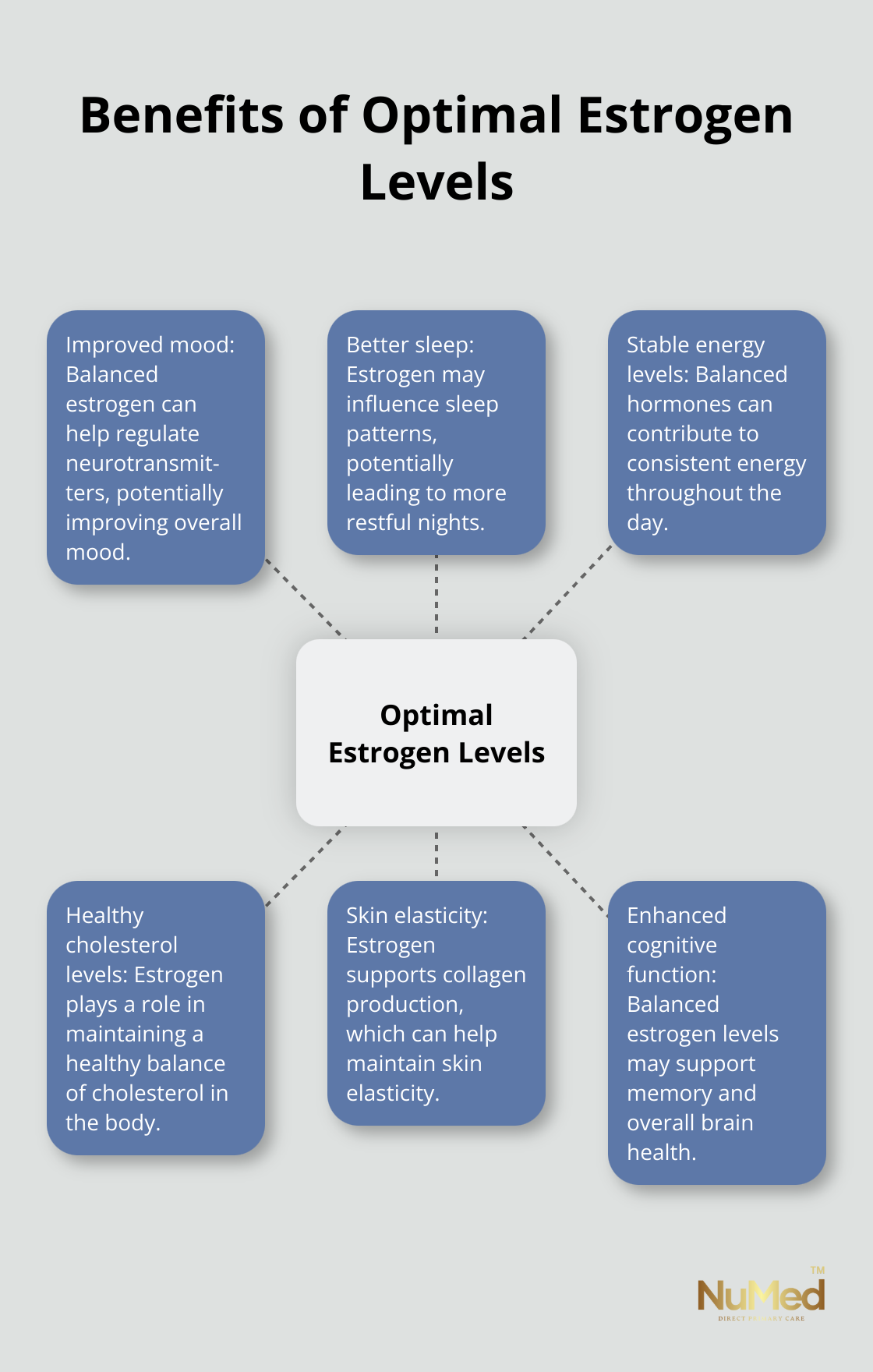
The Power of Estrogen-Rich Foods
Including estrogen-rich foods in your diet can naturally support hormone balance.
Some patients have reported improvements in hormone balance through dietary changes. For example, one individual experienced a reduction in PMS symptoms after incorporating more soy and flaxseeds into her diet for three months.
A Word of Caution
While food can help, it’s not a replacement for medical treatment if you have a diagnosed hormone imbalance. Always consult with a healthcare provider before making significant changes to your diet or supplement regimen.
Now that we understand the importance of estrogen, let’s explore some top foods that can naturally boost your estrogen levels and support overall hormonal health.
Phytoestrogen-Rich Foods for Hormonal Balance
Soy: A Powerhouse of Phytoestrogens
Soy isoflavones result in no effects on 4 measures of estrogenicity in postmenopausal women, according to a systematic review and meta-analysis. Tofu, tempeh, and edamame offer excellent options.
Add cubed tofu to stir-fries or blend silken tofu into smoothies for a protein boost. Use tempeh as a meat substitute in sandwiches or tacos. Snack on edamame pods for a quick phytoestrogen fix.
Seeds: Small but Mighty
Flaxseeds and sesame seeds pack a powerful phytoestrogen punch. Flaxseed can reduce tumor growth in mice, particularly the tumors found in human post-menopausal breast cancer, according to research studies at the University of Toronto.
Grind flaxseeds and sprinkle them on yogurt or oatmeal. Use tahini (sesame seed paste) as a spread or in dressings. Try 1-2 tablespoons of ground flaxseeds or 1 tablespoon of sesame seeds daily.
Fruits and Vegetables: Nature’s Phytoestrogen Bounty
Certain fruits and vegetables contain rich phytoestrogen sources. Apples, berries, dried fruits, broccoli, and carrots make excellent choices.
Include a variety of these foods in your diet. Add berries to your breakfast, snack on dried fruits, and incorporate broccoli and carrots into your main meals. Try at least 5 servings of fruits and vegetables daily.
Legumes and Whole Grains: Fiber and Phytoestrogens
Legumes like lentils, chickpeas, and beans, as well as whole grains such as oats, barley, and quinoa, provide not only fiber but also phytoestrogens. The American Heart Association recommends regular consumption of these foods for heart health.
Make lentil soup, add chickpeas to salads, or enjoy a quinoa bowl for lunch. Replace refined grains with whole grains in your meals. Try at least 3 servings of whole grains and 1 serving of legumes daily.
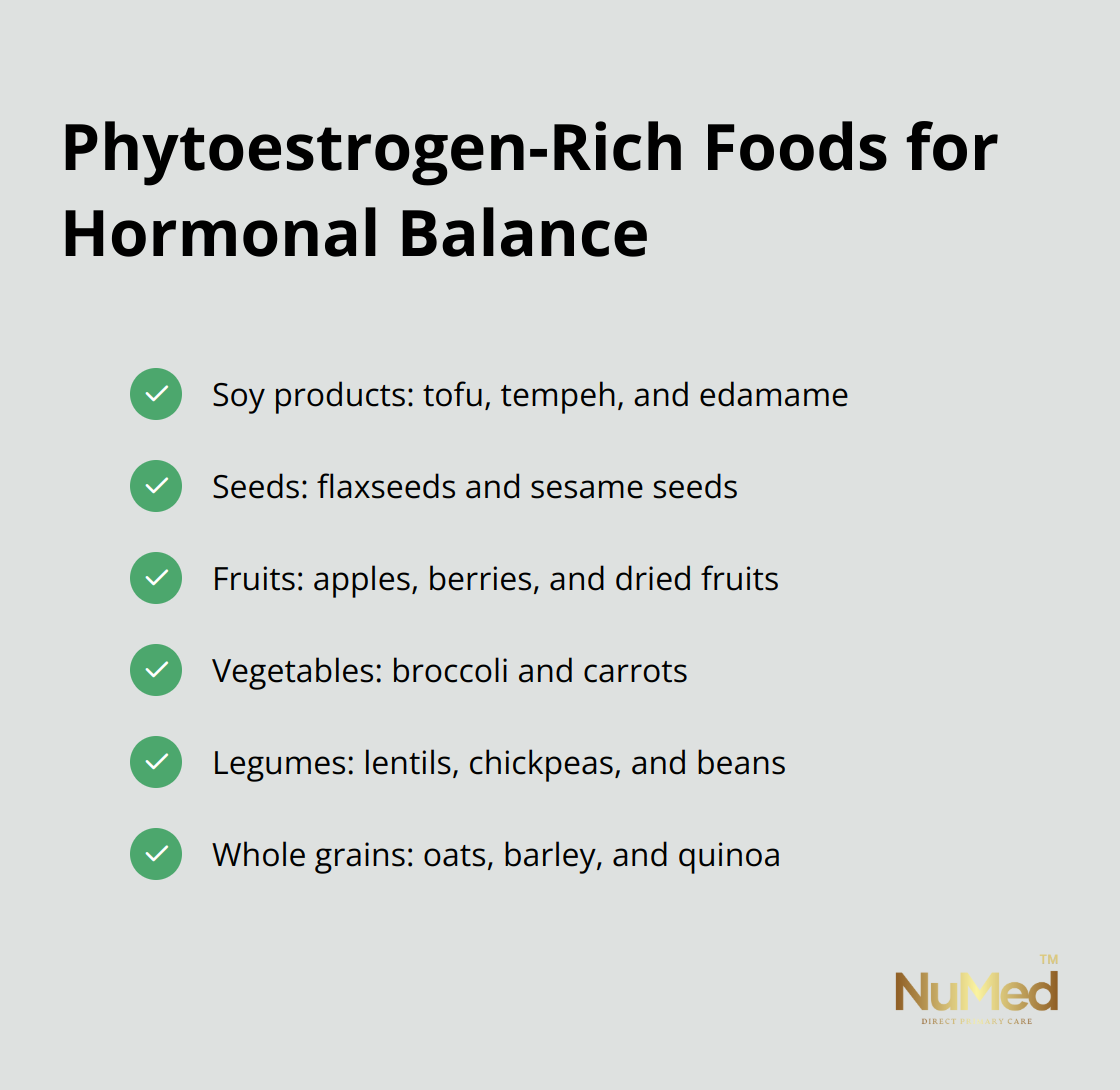
Now that we’ve explored these phytoestrogen-rich foods, let’s discuss how to incorporate them into your daily diet effectively and deliciously.
How to Boost Your Estrogen Intake Daily
Start Your Day with a Phytoestrogen Boost
Begin your morning with a bowl of oatmeal topped with ground flaxseeds and berries. This combination provides phytoestrogens from whole grains, seeds, and fruits. Add a splash of soy milk for an extra estrogen boost. Try to include 2 tablespoons of ground flaxseeds daily to maximize the benefits.
Pack Your Lunch with Estrogen-Rich Options
For lunch, prepare a quinoa and lentil salad with roasted broccoli and carrots. This meal combines the phytoestrogen power of whole grains, legumes, and vegetables. Top it with a tahini dressing for an extra sesame seed boost. Include at least 1 cup of cooked lentils or beans in your diet 3-4 times a week.
Snack Smart for Hormone Balance
Between meals, choose a handful of dried fruits like apricots or prunes (concentrated sources of phytoestrogens). Pair them with some almonds for a satisfying and hormone-balancing snack. Try to consume a quarter cup of dried fruits and a small handful of nuts daily.
Dinner with a Side of Soy
For dinner, experiment with tofu or tempeh as your protein source. A stir-fry with these soy products, plenty of vegetables, and brown rice makes for a well-rounded, estrogen-rich meal. Include soy products in your diet at least 2-3 times a week.
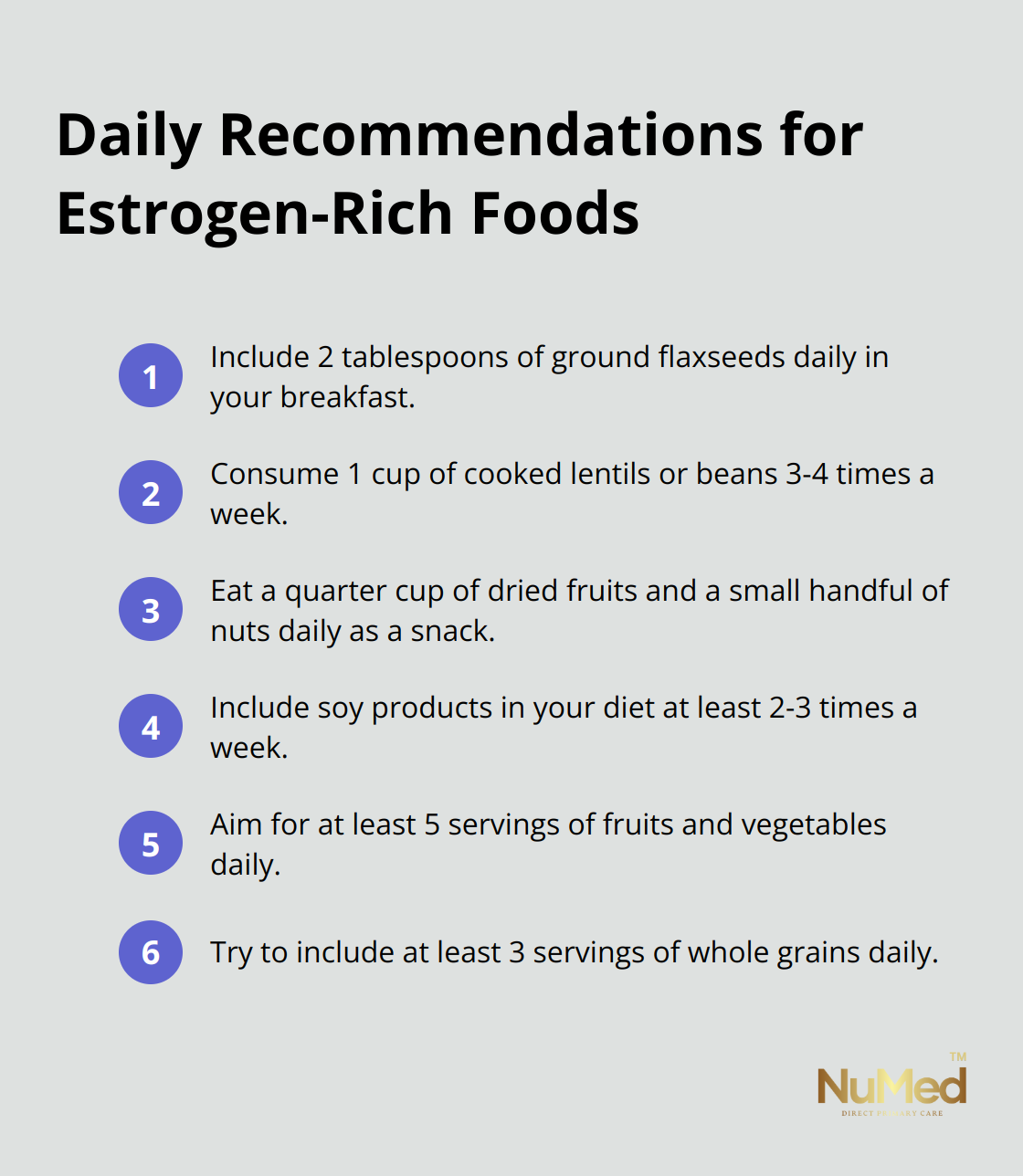
Personalize Your Approach
While these foods can support hormone balance, it’s important to maintain a varied diet. What works for one person may not work for another, so pay attention to how your body responds to dietary changes. If you consider making significant changes to your diet to support hormone balance, schedule a consultation with a healthcare provider. They can help you create a personalized plan that takes into account your unique health needs and goals.
Final Thoughts
High-estrogen foods can support hormonal balance and overall health. These phytoestrogen-rich options include soy products, seeds, fruits, vegetables, legumes, and whole grains. A balanced diet with a variety of these foods offers potential benefits for menopausal symptoms, bone health, and cancer risk reduction.
Your body’s response to dietary changes is unique. We recommend you pay attention to how you feel after incorporating these foods into your meals. If you plan to make significant alterations to your diet for hormone balance, consult a healthcare provider.
At NuMed Direct Primary Care, we offer personalized healthcare that focuses on preventing illness and addressing root causes. Our approach includes comprehensive lab services, functional medicine, and health coaching to tailor treatments to your individual needs (including dietary recommendations). We can work with you to create a plan that supports your hormonal health while considering your overall health goals.
